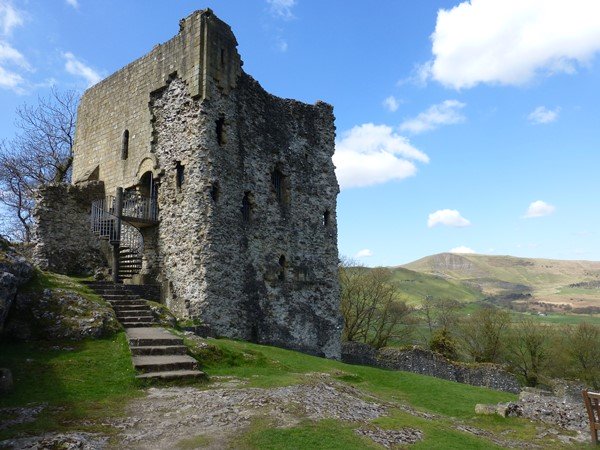Norman England
Anglo-Saxon England was a rich, orderly, structured society where everyone knew his place, his rights and his duties, a centre of Christianity and learning. The Norman conquest changed all that.
It is interesting to speculate what would have happened had Harold not broken his oath to William of Normandy, or had William been crowned king immediately after the death of Edward the Confessor. He might then have introduced changes to the way England was governed more slowly, maybe even left many of the existing structures in place.
Would England have as many castles had William arrived in peace?
Would language and law have changed to the extend they did?
We cannot know for sure. William certainly would not have come to be called William the Conqueror, a title he apparently disliked. But as Harold forced him to arrive with an army to claim his lands, Anglo-Saxon England was doomed to destruction. A large number of Anglo-Saxon nobles and their retainers died with King Harold at the Battle of Hastings. Those who remained found themselves without rights, lands, and often in danger of their lives. And Anglo-Saxon England changed forever ... becoming Norman England.
In this section of the site, I'll explore what the Norman Conquest meant to England and the life of its people, what changed and what stayed the same, what happened and what did not. Please follow me into a fascinating time...
The Normans
Essentially, the Normans are of Viking stock. As others of their kind they roamed the seas and coastlines of Europe. Some, under their duke, Rollo, settled in Normandy and began to carve out a steady living for themselves.
Find out about
- Duke Rollo
- Norman Society
- William the Conqueror's early years
- Norman military advancements
The Norman Conquest
The Norman's greatest adventure was undoubtedly the conquest of England. What drove William the Conqueror to commit to such an undertaking? And what happened next? Find out about
- William the Conqueror and Edward the Confessor
- What happened in 1066?
- The Battle of Hastings
- The Bayeux Tapestry
- William the Conqueror's Coronation
- Rebellions against the Normans
- Hereward the Wake
- The Harrying of the North
- The Domesday Book
Norman Castles
 Peveril Castle Norman Keep
Peveril Castle Norman Keep© essentially-england.com
The Normans changed the English landscape forever, by erecting mighty castles, many of which still stand today. Initially purely defensive and a very obvious way to show the English who was in charge, castles soon grew more elaborate. Wooden palisades were replaced by stone and castles became homes as well as defensive positions.
Find out here about:
- Motte and Bailey Castles
- Castle Warfare
- Life in a Norman Castle
- The A-Z of Norman Castles in England
- Alnwick Castle
- Berkeley Castle
- Carlisle Castle
- Castle Acre
- Fotheringhay Castle
- Norwich Castle
- Warkworth Castle
Life in Norman England
Conquering a country is one thing, keeping hold of it for year after year is a much harder tast. The Normans succeeded holding England, because they not only imposed their military rule, but also much of their culture, a new language, laws, foods, customs and building styles. The balance of power shifted and men and women famous in Anglo-Saxon England were now powerless, while Normans nobody had heard of before ruled the country.
In this section you can find out about all of these things:
- William the Conqueror
- A Who is Who of the Norman kings of England
- Norman Laws
- Royal Forests, Hunting and Forest Laws
- Language
- Fashion and Styles in Norman England
- Norman Food
- England's first civil war
- The White Ship Disaster
- Empress Matilda
- King William II
- King Henry I
- King Stephen
For more England information return from Norman England to the Essentially England homepage.






